In Amy Tan’s Newest Book, the Drama Is All About the Birds
Audubon > News Read More
Amy Tan has spent much of her life looking for good stories. She’s often found them close to home: Her most famous novel, The Joy Luck Club, weaves together tales of Asian-American experiences across generations, drawing inspiration from the lives of her family and friends around the San Francisco Bay Area.
Lately, the best-selling author has gotten hooked on another narrative playing out in her backyard. It’s got the makings of a thrilling tale: romantic dramas, family bonds, and epic journeys, all wrapped up in a primal fight for survival. “That’s a huge, dramatic story going on out there,” Tan says—and it’s being told by the birds.
Over recent years, Tan has become obsessed with tracking the courtships, squabbles, and migrations of the birds around her home in Sausalito, California. She’s documented their lives through hundreds of pages of sketches and journal entries. Tan’s next literary release, The Backyard Bird Chronicles, due out on April 23, shares some of these colorful dispatches from the avian world and traces the author’s journey to caring for her feathered guests.
Birds weren’t always a priority for Tan, though she’s long been a nature lover. As a kid, she gravitated to creatures she could get her hands on. “You could catch lizards, or you could catch frogs in the creek, or caterpillars,” she says. She couldn’t catch a bird. (Alfred Hitchcock’s The Birds, filmed near where Tan grew up, didn’t help endear them to her.) Even during her many hiking and backpacking trips later in life, she didn’t notice much beyond the obvious ducks, geese, and vultures.
That changed in 2016 when, feeling depressed about the racism she was seeing dredged up around the election that year, Tan decided she needed to reconnect with something beautiful. “Hatred is the opposite,” she says. “It’s so ugly.” At age 64, she started taking workshops with artist John Muir Laws to learn the craft of nature journaling, an age-old practice of connecting with the natural world. Tan went on field trips where she learned to deeply observe her surroundings and capture them through notes and drawings in real time.
Soon enough, the author was hooked. Since Tan doesn’t drive, she couldn’t easily get to nature and wildlife hotspots. Luckily, she’s still found plenty of opportunity to polish her new craft: Her yard’s paradise of oak trees, abundant flowers, and tangled undergrowth entices a range of bird species—and the house’s wide windows give Tan a view of the action. “It’s almost like an aviary,” she says. “I wear my binoculars every day, all day long.”
Brushing her teeth in the morning, she watches Anna’s Hummingbirds flit outside the bathroom and, later, for hours on end, perches at the dining room table to sketch the juncos, finches, and jays that hop around her growing collection of feeders. Each day, she checks for the pair of Great Horned Owls—“Junior” and “Moon Lady”—who rest in an oak. Over time, she’s gone from noticing only a handful of species in her yard to identifying more than 60.
As someone who has long struggled with “perfection syndrome,” Tan feels that journaling frees her to create from a place of curiosity and observation, rather than constant pressure. Yet the same keen eye that sharpens her fiction has helped Tan hone her birding. She now picks out patterns of behavior, such as how hummingbirds, which usually fight fiercely over their food, will sometimes take their last drink together in peace once dusk hits. And just as she tries on the perspectives of her fictional characters, Tan works to get inside the heads of her avian companions. “What is ‘play’ to a bird? What’s ‘fun’ to a bird? What’s ‘love’ to a bird?” she wonders. “What is a bird thinking when it looks at me?”
When Tan connects with a certain bird, sometimes she will spend as long as 12 hours capturing its likeness with a more detailed illustration. “I’m not drawing a representation for a field guide,” she explains. “I am doing a portrait of a bird that I have a relationship with.” These bonds can be emotional. One portrait features a juvenile Cooper’s Hawk—“Miss Feisty”—who collided with Tan’s feeders, probably while diving for its prey, and damaged a wing. Though Tan brought the hawk to a wildlife rehabilitation center, Miss Feisty eventually had to be euthanized, a loss the author felt deeply. “I tried to draw her portrait,” she writes in the book. “But I could not capture her spirit.”
Tan refuses to dismiss such casualties with a writerly metaphor about the circle of life. “This is what happens,” she says. “But it doesn’t mean that I would ever use a cliche to comfort myself. I think it’s good to mourn any animal or person that dies.” And she does what she can to keep her backyard birds safe—like hand-painting spiderweb patterns across her windows to prevent strikes, or taking in feeders when she hears of a disease outbreak.
Though she started her nature journals as a personal project, Tan hopes publishing her work can inspire others to protect birds and cherish the stories they tell. After all, once you start paying attention to birds, “you naturally fall in love with them,” she says. And now that she’s tuned into their world, Tan can’t look away: “To me, they’re little miracles.”
The Backyard Bird Chronicles, by Amy Tan. 320 pages, $35.00, Knopf. Available for preorder, on sale on April 23.
This story originally ran in the Spring 2024 issue as “A New Chapter.” To receive our print magazine, become a member by making a donation today.
